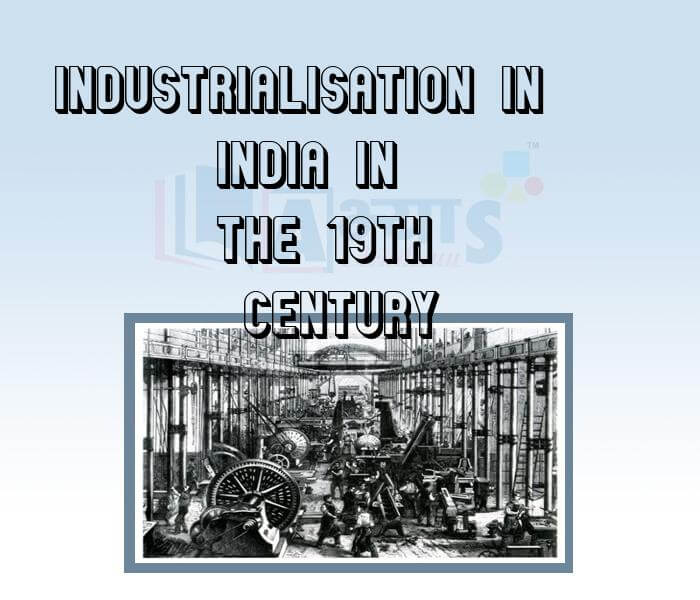Industrialisation in India in the 19th Century









Industrialisation in India in the 19th Century
Industrialisation in India in the 19th century: Underdeveloped countries are greatly handicapped by shortage of capital for industry and enterprise.
Finance is the prime maker of growth. Anyway, capital for industry and entrepreneurial zeal were severely and conspicuously scarce in India when the East India Company (1600-1874) stepped into this country.
The British government’s attitude to industrial development in India was lukewarm. It did not establish heavy industries in India as they would become competitors to British industries) However, (the Revolt of 1857 are the growing national movement in India put pressure on the British to do something about the dying industries of Indian. the commission strongly recommended the setting up of factories in India as this would reduce pressure on agriculture. The Swadeshi Movement started by Mahatma Gandhi, which stressed the need to develop indigenous industries, also gave a boost to the industrialization of India.
Naturally, under the circumstance, the state is supposed to act as a godfather for promoting and financing industries. Since India was under the British rule for almost 200 years (1757-1947), the British Government, found it unprofitable and unnecessary to go for industrialization in India. However, imperialist capital came in this country as a matter of colonial policy—the policy of subordination of Indian to British capital. It was only after the First World War (1914-1918), that state patronage for industrial development was visible as Britain’s supremacy all over the globe came under serious threat.
Against this backdrop, a “new” pattern was evolved to overcome the obstacles are:
(i) shortage of entrepreneurship;
(ii) non-availability of, mainly, venture capital; and
(iii) dearth of managerial skill and know how.
This new pattern of industrial organization that evolved came to be known as the Managing Agency System (MAS)—a peculiar business entity in the early years of the nineteenth century. Before we embark upon this form of industrial organization, we will make a brief review of the industrial development during the British rule.
Students / Parents Reviews [10]
It was good as the experience because as we had come here we had been improved in a such envirnment created here.Extra is taught which is beneficial for future.

Eshan Arora
8thIt has a great methodology. Students here can get analysis to their test quickly.We can learn easily through PPTs and the testing methods are good. We know that where we have to practice

Barkha Arora
10thMy experience was very good with Abhyas academy. I am studying here from 6th class and I am satisfied by its results in my life. I improved a lot here ahead of school syllabus.

Ayan Ghosh
8thA marvelous experience with Abhyas. I am glad to share that my ward has achieved more than enough at the Ambala ABHYAS centre. Years have passed on and more and more he has gained. May the centre flourish and develop day by day by the grace of God.

Archit Segal
7thAbhyas Methodology is very good. It is based on according to student and each child manages accordingly to its properly. Methodology has improved the abilities of students to shine them in future.

Manish Kumar
10thAbhyas is a complete education Institute. Here extreme care is taken by teacher with the help of regular exam. Extra classes also conducted by the institute, if the student is weak.

Om Umang
10thOne of the best institutes to develope a child interest in studies.Provides SST and English knowledge also unlike other institutes. Teachers are co operative and friendly online tests andPPT develope practical knowledge also.

Aman Kumar Shrivastava
10thMy experience with Abhyas academy is very good. I did not think that my every subject coming here will be so strong. The main thing is that the online tests had made me learn here more things.

Hiya Gupta
8thAbout Abhyas metholodology the teachers are very nice and hardworking toward students.The Centre Head Mrs Anu Sethi is also a brilliant teacher.Abhyas has taught me how to overcome problems and has always taken my doubts and suppoeted me.

Shreya Shrivastava
8thBeing a parent, I saw my daughter improvement in her studies by seeing a good result in all day to day compititive exam TMO, NSO, IEO etc and as well as studies. I have got a fruitful result from my daughter.
